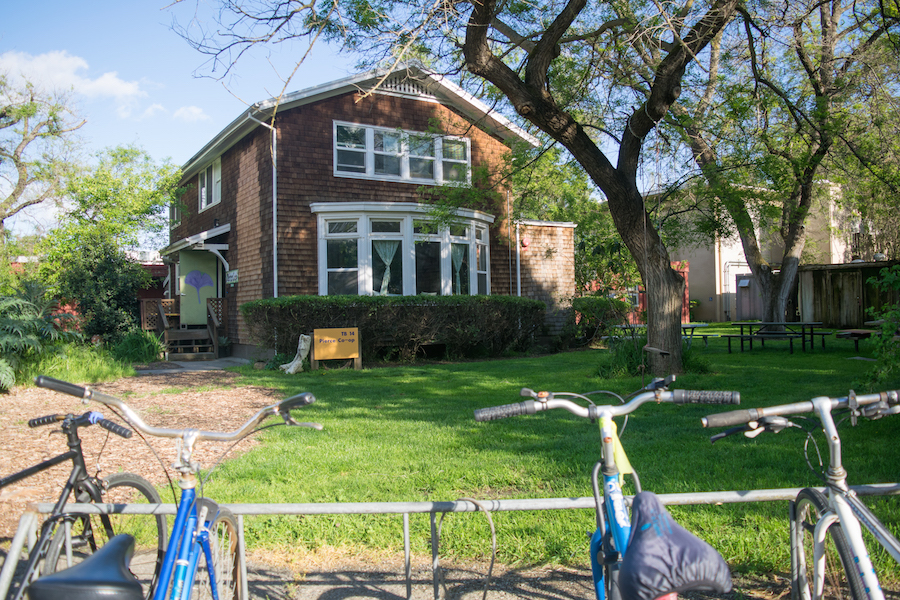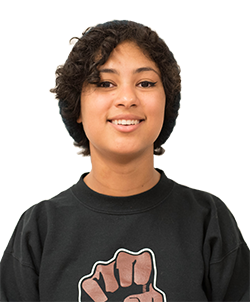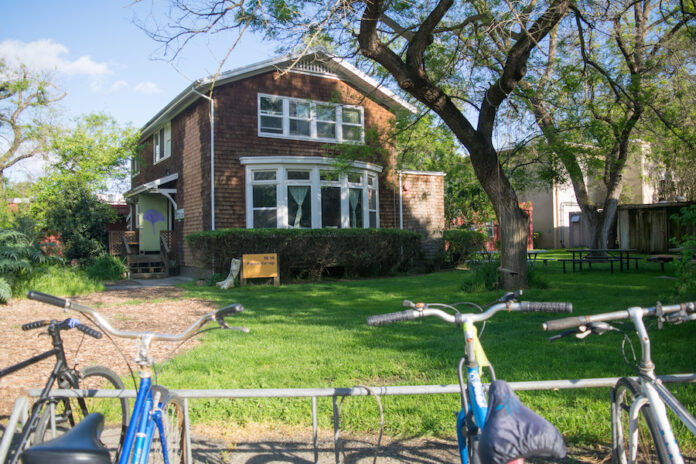
 Co-op life as discussed by UC Davis Tri Co-opers
Co-op life as discussed by UC Davis Tri Co-opers
Generalizations of co-ops and their occupants create false impressions that co-opers are anti-establishment and that this is a negative thing. But most co-opers, especially the ones I have talked to, wouldn’t even consider labeling themselves as such. Instead, they will gladly tell you their ideas about reforming flawed but functional systems. Neil Singh, a third-year transfer and ecological management and restoration major, said, “You can’t just knock something down that’s doing good things. You can criticize it for the bad things but understand that it’s ultimately trying to provide something good for folks.”
The Pierce co-opers talk about sustainability in a way that advocates heavily for agriculture.
“This is like every first-week lecture being in sustainable ag and food systems,” said Kaitlin Oki, a fifth-year sustainable agriculture and food systems major. “Any time you take a class that has the word sustainability in the title, the first slide is like ‘What is sustainability anyway?’ My favorite outcome of these conversations is always that you cannot define sustainability. It is, one, a buzzword and should be treated as such. Two, trying to define sustainability is like drawing a map. Zoom out and it makes a lot of sense, in broad, abstract terms. But on a map, if you’re looking at a border of a country, you zoom in on it and the less accurate it becomes and it has to get more detailed. The same goes with sustainability. You could abstractly say holistic sustainability is socially, environmentally and economically sustainable but if you’re going to zoom in on that you are going to have to define that in more specific terms. Like what is environmental sustainability? Well, it promotes biodiversity and it conserves water. But you can’t quite get it all the way zoomed in and it starts to lose its meaning as you zoom in more.”
The Davis Tri Co-ops try to tackle the intersections of social, economic and environmental sustainability by putting on many spectacular programs run by co-opers such as their new seminar, PLS 198, for which they get paid to both promote sustainable living education and support their residents financially. They also protect native plant species and wildlife, host garden parties, have community dinners Sunday through Thursday at 7 p.m. each week. From April 14 to 16, they will host WestCo, a conference for co-opers across the West Coast to come together and exchange resources and ideas.
I was personally surprised when Oki mentioned that when The Aggie stopped by in years past that co-opers were either misrepresented or underrepresented in pieces. Given the rich and lengthy history of the Davis Tri Co-ops prior to my recent arrival and how long the co-opers have been here waiting for someone to accurately tell their stories regarding co-op life, I expected there to have already been a wealth of articles authored by The Aggie and other Davis media outlets. Because the true opinions of co-opers are often overlooked or simply unheard of, I asked them if there was one thing they would want the general student body to know about their way of living.
Leland Howard, a fourth-year biomedical engineering major, said that co-opers are “like a family with a mission.” Neil Singh added, “It’s important to remember where everything comes from” and to “understand issues arise from a lot of things being interconnected under oppressive systems.”
“I swear I’ve learned 100 times more about life, how to be a good, compassionate person and how to navigate the world living in this co-op for three years than I’ve learned at UC Davis in classes and lecture,” said Oki. “You want some real education? Come live at the co-ops or hang out here at the very least. You want to apply the badass social justice shit you’re learning in your classes? Come do it here! We like to play hard.” She then proceeded to recite the Solar Community Housing Association mission statement verbatim.
Fellow sustainable agriculture and food systems major Peter Varas concluded, “come eat dinner with us,” a sentiment that embodies the essence of co-op life.
Written by: Camille Chargois — cachargois@ucdavis.edu
Disclaimer: The views and opinions expressed by individual columnists belong to the columnists alone and do not necessarily indicate the views and opinions held by The California Aggie.




